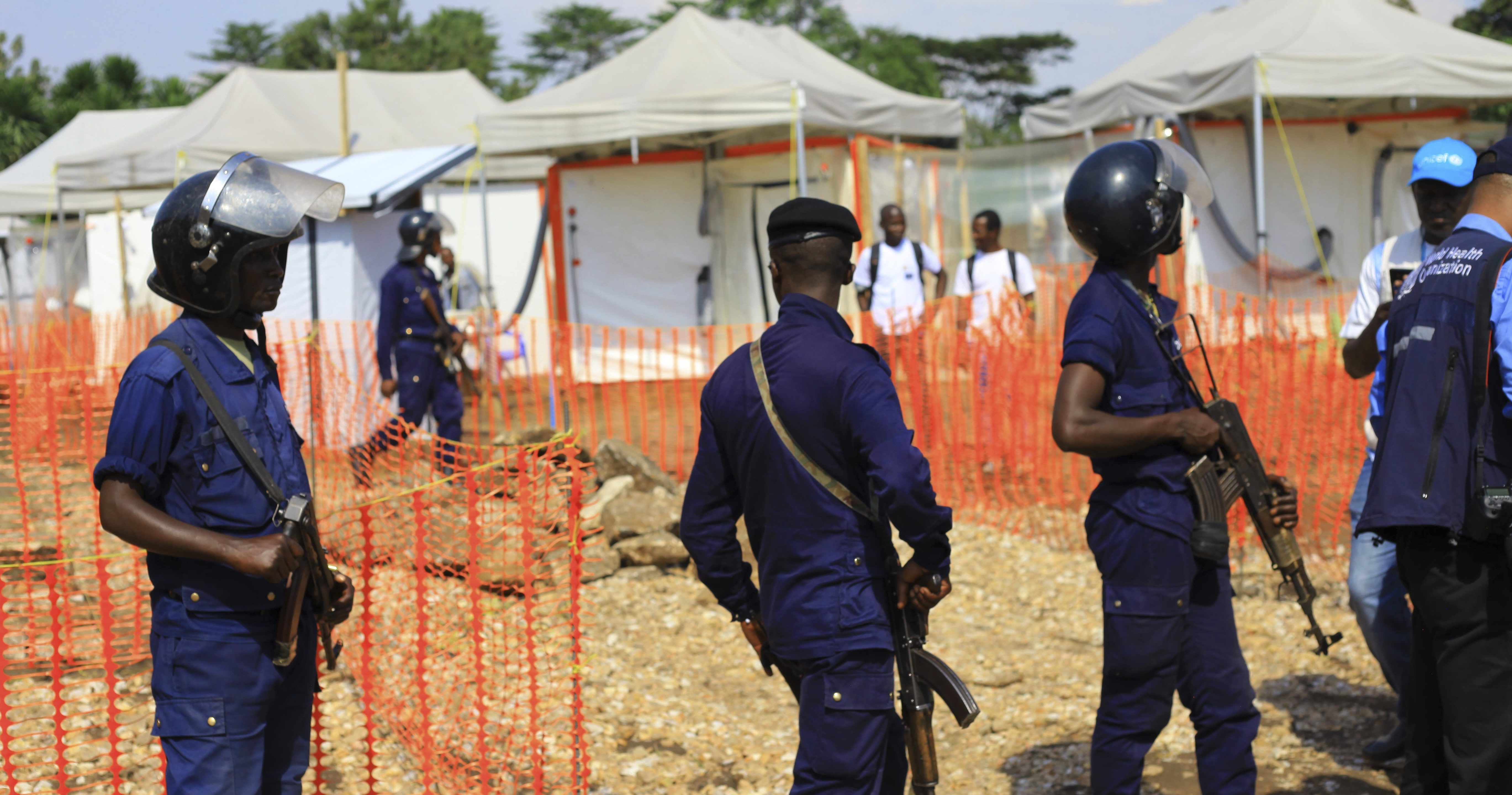
Rebel Attacks Increase Risk of Ebola Breaking from Containment Zone
Highlighting the dangers in containing an Ebola outbreak in a war zone, suspected rebels killed seven people in northeastern Congo and sent residents fleeing, an official said.
Global health officials have warned that combating this virus outbreak is complicated by multiple armed groups in the mineral-rich region and a restless population that includes 1 million displaced people and scores of refugees leaving for nearby Uganda every week.
The insecurity means health workers might have to change a vaccination strategy that proved successful in Congo’s previous Ebola outbreak, the World Health Organization’s emergency preparedness chief Peter Salama said Saturday.
The “ring vaccination” approach of first vaccinating health workers, contacts of Ebola victims and their contacts might have to give way to the approach of vaccinating everyone in a certain geographic area such as a village or neighborhood. That would require a larger number of vaccine doses.
Vaccinations began Wednesday in the current outbreak, which was declared on Aug. 1 and has killed 11 people in the densely populated region. WHO has said more than 3,000 Ebola vaccine doses are available in Congo.
While Congo’s previous Ebola outbreak, declared over barely a week before the current one began, set off alarm by spreading to a city of more than 1 million on the other side of the country, the current outbreak comes with the threat of armed attack.
The Friday night assault that killed seven people in Mayi-Moya, about 24 miles from Beni city, was likely carried out by rebels with the Allied Democratic Forces, the administrator of Beni territory, Donat Kibwana, told The Associated Press. The rebels have killed more than 1,500 people in and around Beni in less than two years.
The rebels sent the local population fleeing, Kibwana said. Beni residents already had been shaken by the discovery last week of 14 bodies of civilians who had been seized by suspected ADF rebels.
The latest attack occurred as the WHO director-general, Tedros Adhanom Ghebreyesus, was visiting the area to see the response to the Ebola outbreak, which is being carried out in some cases under armed escort.
“The active conflict in the area is a barrier to control Ebola,” Tedros said in a Twitter post Saturday night. “I call on all warring parties to provide secure access to all responders serving affected populations & saving lives.”
United Nations peacekeepers, Congolese police and at times Congolese troops have been traveling with convoys of health workers as they fan out to contain the outbreak. Hospitals are guarded by Congolese police and military police.
“This will be a highly complex operation because it is occurring in an area that has been embroiled in armed conflict for 20 years,” said Hanna Leskinen, a spokeswoman for the International Committee of the Red Cross. “People are regularly moving as waves of violence force new communities to flee. This makes tracing infected cases much harder.” Health care workers may be forced to flee as well, she said.
Parts of North Kivu province, where most of the Ebola cases have been reported, have been inaccessible to aid groups because of the fighting, Leskinen said.
“It is critical that the disease is contained before it spreads to areas where there is more active fighting or it will be incredibly challenging to reach those in need (and) ensure safe vaccination campaigns,” she said. That includes keeping the vaccines at the optimal temperature of minus 70 degrees Celsius (minus 158 degrees Fahrenheit), a challenge in a region with hot temperatures and unreliable power supplies.
So far, Congo’s health ministry has said 48 cases of hemorrhagic fever have been reported in this outbreak, 21 of them confirmed as Ebola.
Nearly 1,000 people are being monitored. Screenings for the virus are being carried out at the heavily traveled border; officials have said travel restrictions are not necessary.
This is Congo’s tenth outbreak of Ebola, which is spread via contact with bodily fluids of those infected, including the dead. There is no licensed treatment, and the virus can be fatal in up to 90 percent of cases, depending on the strain.
The Western Journal has reviewed this Associated Press story and may have altered it prior to publication to ensure that it meets our editorial standards.
Truth and Accuracy
We are committed to truth and accuracy in all of our journalism. Read our editorial standards.
Advertise with The Western Journal and reach millions of highly engaged readers, while supporting our work. Advertise Today.











